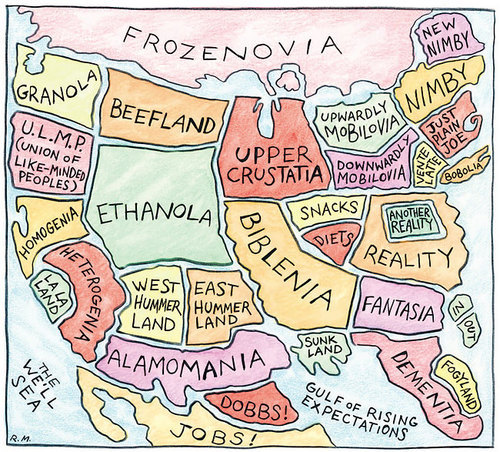|
T N T |
The Native Tourist reformed/biblical observations on Christianity and culture |
 |
|
|
blog by Dave Hegeman author of Plowing in Hope
Dave is:
email: house1870 -at- hotmail Subscribe to August 2002 September 2002 October 2002 November 2002 December 2002 January 2003 February 2003 March 2003 April 2003 May 2003 June 2003 July 2003 August 2003 September 2003 October 2003 November 2003 December 2003 January 2004 February 2004 March 2004 April 2004 May 2004 June 2004 July 2004 August 2004 September 2004 October 2004 November 2004 December 2004 January 2005 February 2005 March 2005 April 2005 May 2005 June 2005 July 2005 August 2005 September 2005 October 2005 November 2005 December 2005 January 2006 February 2006 March 2006 April 2006 May 2006 June 2006 July 2006 August 2006 September 2006 October 2006 November 2006 December 2006 January 2007 February 2007 March 2007 April 2007 May 2007 June 2007 July 2007 August 2007 September 2007 October 2007 November 2007 December 2007 January 2008 February 2008 March 2008 April 2008 May 2008 June 2008 July 2008 August 2008 September 2008 |
Tuesday, May 27, 2008
Frame on Culture
from Doctrine of the Christian Life By John M. Frame: Chapter 45: What is Culture? Chapter 46: Christ and Culture Chapter 47: Christ and Our Culture Chapter 48: Christians In Our Culture Chapter 49: Culture in the Church All of these are available via pdf, Word, html. HT: Mark Horne Friday, May 23, 2008
The Times they Are a Changin'
I suppose this isn't exactly new news. But Cnet has a piece on how the old audiophile approach to music is all but dead. The "high fidelity" approach to music is all but dead (or at the very least has been pushed to a far-off corner niche). It is striking how difference music listening is today. Ipods and the like have made music into a ubiquitous, mostly solo affair. When I was a college undergraduate audio systems were a pretty big deal (often literally). Listening to records was often a communal activity in a particular space. Now this is all but a ghost from the past. Music today is a commodity--ripped for free track by track, or bought for 99 cents and eventually added to a vast digital library, either destined to become a favorite, or more likely forgotten for good after a couple of listens. Today's music players are regarded the same way--mostly as disposable. Either the player will work for two or three years before sputtering and dying, or a newer, faster, smaller, better player that has far more cachet will be released in six months. Monday, May 19, 2008
You Are Here
 This map gave me a pleasant chuckle. According to the map I live in "U.L.M.P.", but experience tells me I am more likely situated in humble state of Granola. Crunch. Crunch. HT: Alan Jacobs Tuesday, May 13, 2008
Robert Rauschenberg is Dead
 His evocative works (along with Jasper Johns) were very influencial on my early interest in painting and art, though you would never know it today. He once quipped: "A pair of socks is not less suitable to make a painting with than wood, nails, turpentine, oil and fabric." He is usually called a pop artist, but his approach is actually closer to Dada. A really fine book that captures his early development and relationship to Duchamp is Calvin Tomkins Off the Wall - really good read.
Convergence?
Its seems that I am running into the idea of our future life being lived on earth - with buildings and culture, etc. - more and more. The idea was first powerfully introduced to me in Richard Mouw's When Kings Come Marching in and was reinforced by Anthony Hoekema's books. But this idea goes back (at least) to Kuyper and Bavinck and can be seen in many other reformed writers. The idea is prominant in my book Plowing in Hope, and is featured in other recently published books such as Nathan Bierma's Bringing Heaven Down to Earth and Michael Wittmer's Heaven is a Place on Earth. Most recently I saw this in a book excerpt published by Christianity Today by NT Wright: Thus the church that takes sacred space seriously (not as a retreat from the world but as a bridgehead into it) will go straight from worshiping in the sanctuary to debating in the council chamber; to discussing matters of town planning, of harmonizing and humanizing beauty in architecture, green spaces, and road traffic schemes; and to environmental work, creative and healthy farming methods, and proper use of resources. If it is true, as I have argued, that the whole world is now God's holy land, we must not rest as long as that land is spoiled and defaced. This is not an extra to the church's mission. It is central. This is a very powerful idea. I think it is key to healthy Christian cultural activity - in addition to the restorative work that Wright discusses in his essay. Tuesday, May 06, 2008
Just Passing Through
But Where? Doug Wilson puts it quite well: Many Christians believe the cosmos has an upper and lower story, with earth as the lower and heaven as the upper. You live the first chapters of your life here. Then you die, and you move upstairs to live with the nice people in part two. There might be some kind of sequel after that, but it is all kind of hazy. The basic movement in this thinking is from Philippi “below” to Rome “above.” As they say, home is where the heart is. |
